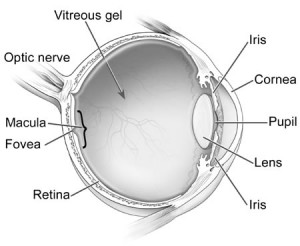Cataracts
What is a Cataract?
A cataract is a clouding of the lens that leads to decreased vision in the eye. They are very common in older people and by the age of 80, more than half of all patients have a cataract or have had cataract surgery.
What is the lens?
The lens is the clear part of the eye that helps to focus images on the retina. When it gets cloudy the images seen will be blurred.
Risk of cataracts:
- Aging
- Certain diseases (example diabetes)
- Behavioral (smoking)
- Environmental
- Trauma
Symptoms:
- Cloudy or blurry vision
- Faded colors
- Glare, poor night vision, double vision
- Frequent prescription changes
How is Cataract detected?
- Via a comprehensive eye exam that includes
- Visual acuity
- Dilated Exam
- Tonometry
How is Cataract treated?
- Early cataracts may be treated with glasses
- Advanced cataracts that are affecting the vision and cannot be corrected by glasses are treated with cataract surgery
- Cataract surgery is one of the most common operations performed in the United States. It is one of the safest and most effective surgeries.
What are the risks of Cataract surgery?
As with any surgery, cataract surgery poses risks such as infection, bleeding, retinal problems and any part of the eye could be affected.
Active research for cataract:
- Effect of Sunlight Exposure
- Vitamin Supplementation
- Genetic studies
